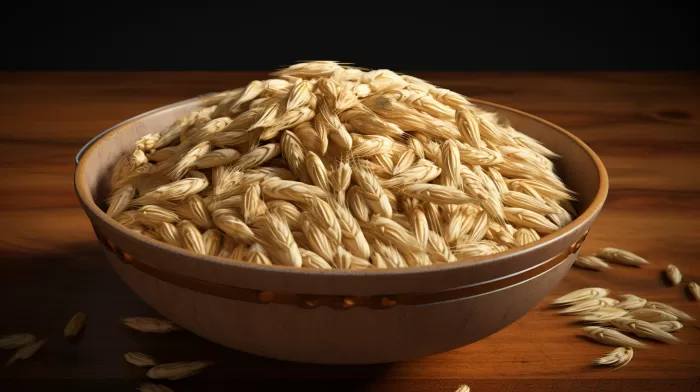Barley may have been pushed aside in recent years due to the increasing focus on gluten-free diets. However, this underrated grain carries a wealth of health benefits that could significantly improve your life. Unless you have celiac disease or a gluten allergy, it’s worth giving barley another shot.
Lowering bad cholesterol
Recent research from St. Michael’s Hospital in Toronto has discovered that barley is just as effective at reducing LDL (bad) cholesterol levels as the most popular cholesterol-balancing grain – oats. Everyone knows about the cholesterol-lowering properties of oatmeal, but barley could be the perfect choice for those who aren’t a fan of the taste or are seeking to diversify their diet.
This isn’t the first time barley’s potential to reduce LDL cholesterol levels has been studied, but this research is the first to establish that barley can lower other types of non-HDL cholesterol and levels of apoB, a lipoprotein that transports bad cholesterol through the blood.
Instead of solely focusing on LDL cholesterol levels, doctors and researchers now consider all non-HDL cholesterol levels and apoB levels as a more accurate method of assessing heart disease risk. With barley’s positive impact on these factors, it becomes an important ally in preventing cardiovascular disease.
The good grains
If you’re ready to give barley the benefit of the doubt, here are a few tips to keep in mind: Make sure to buy hulled barley over pearled, as it’s less processed and offers more nutrients. There are various ways to prepare barley, replacing rice being a popular option. Feel free to experiment and find the best way to incorporate this super grain into your diet.
That being said, don’t give up on oatmeal entirely if you’re looking to manage cholesterol levels. Besides providing fiber that helps eliminate bad cholesterol more efficiently, oats contain beta-glucan, a type of fiber that modulates gut microbiota. Beta-glucan can influence bile acid metabolism and the production of short-chain fatty acids, both of which are crucial factors in achieving cholesterol balance.
If you struggle with the taste or texture of oatmeal, try oat milk or overnight oats. Oat powders can make a smoothie creamy and healthier.
Taking advantage of both
These two grains combined can provide an unbeatable natural way to keep your cholesterol under control. When it comes to cholesterol, striking a balance is key. By incorporating both barley and oats into your diet, you can experience their health benefits while still promoting balanced, healthy cholesterol levels needed for vitamin D production and a healthy brain.
In conclusion, both barley and oats have their unique advantages when it comes to managing cholesterol levels and reducing the risk of cardiovascular disease. By incorporating these grains into your diet, you can strengthen your heart and improve your overall health, without the need for medications or extensive lifestyle changes.



